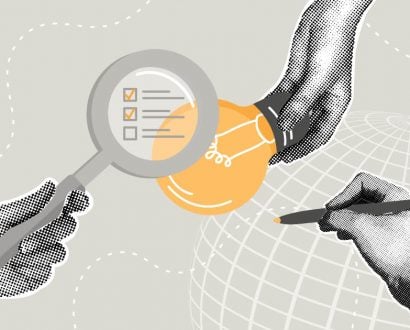When considering what the future job market will look like, it is essential to think beyond the constraints of advancements already in the pipeline. There are already a number of jobs being filled today that didn’t exist until recently, with titles like digital strategist, data security manager, Uber driver, app designer and SEO specialist.
In October 2014, Ancestry.com released research that claims that one in six Australians works in a profession which didn’t exist 20 years ago, and with the accelerating pace of advancements, that trend is set to continue.
The ability to think critically and innovate are becoming pillars of education, and will be a hallmark of future employees. When you couple this with continued changes in how people are educated – specifically the rise of online learning – you begin to get a clearer picture of what tomorrow’s employees will want from their roles and their employers.
The motivation and opportunity to learn new skills and apply their evolving knowledge to real-world problems will be what sets apart employees of the future, and it will be a determining factor in their ability to create their own career paths and jobs, many of which don’t yet exist.
All of this serves as a preamble for CEOs and managers preparing to recruit the next generation of employees.
The education upcoming generations receives will create the social and professional expectations they carry forth into the workplace. It is important that the boss understands these expectations in order to create a business structure and a workplace that attracts the top talent the company requires. Failing to accommodate the needs of future employees will see companies lose them to ‘cool’ platform companies – such as Uber, Airbnb or Snapchat – or have them go it on their own to start the next massive disruption. Bear in mind that the employee that would benefit your business is also the employee that could destroy your business.
Flexibility will be key to attracting the right talent. As CEO, you might be used to going into the office, however technology has already surpassed the need for traditional offices, and work culture is only now starting to catch up. The reality is that the traditional work environment is on the way out, and almost all employees will be location independent in the near future. The future office will be hot desks and a conference room. Most work will be done from wherever the employee can connect to the Internet and access the cloud, and as such more shared offices will likely be utilised.
And forget office hours. The 9–5 day is dying a deserved death, as the ability to work from wherever also means working whenever. Productivity is the only benchmark that will matter in the future, and as long as the work is done, it doesn’t matter from where or when.
The employee of the future will demand a broad scope in their role. They are being educated with an emphasis on critical thinking and problem solving, with a view to establish new opportunities and solutions, as opposed to simply being prepared to continue what has been done historically. You will need to accommodate their desires to change tack, customise their work and focus on new projects that arise in the course of their work. Allowing this freedom of expression will cultivate the exact kind of innovation a company needs in an age of disruption, and can open doors that management hadn’t even dreamed of.
It is also a retention strategy in an age when employees are educated to, and want to, evolve. The concept of long-term employment is already a thing of the past, and the future will see a massive rise in contract workers. Giving people the option to evolve their roles, change their titles and create their own work will benefit the company in many ways.
So attracting and retaining the right talent of the future is about being the company of the future that people will want to work for. It’s not so much about money and climbing the corporate ladder as it is about freedom to create.
The corporate structure of the future will be a loose framework of collaboration and shared information that doesn’t constrict new ideas in favour of traditional products and processes. It will consist of myriad talent working from different locations, creating new opportunities and identifying new solutions. The company the top talent will want to work for will be one where information is shared and not hoarded, where communication is socialised, open and transparent, and everyone can make a contribution.







